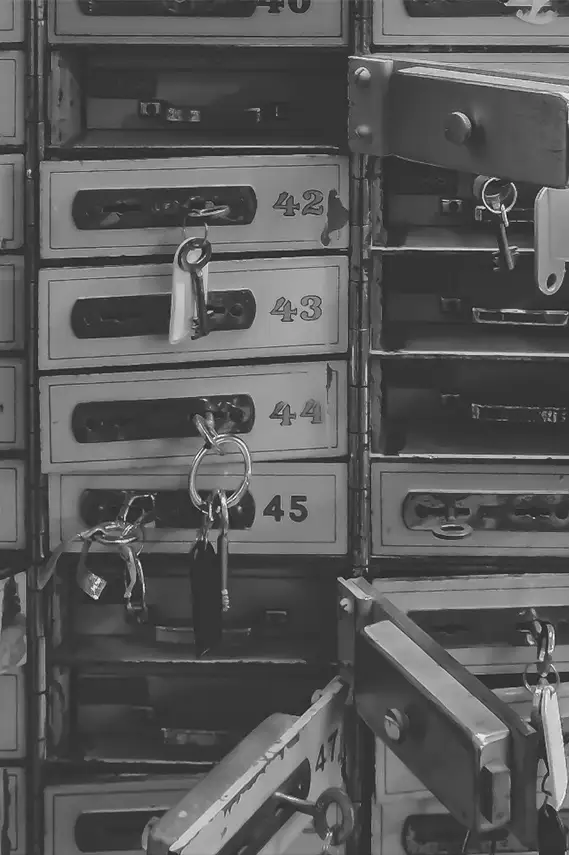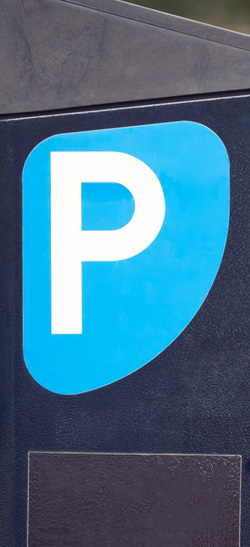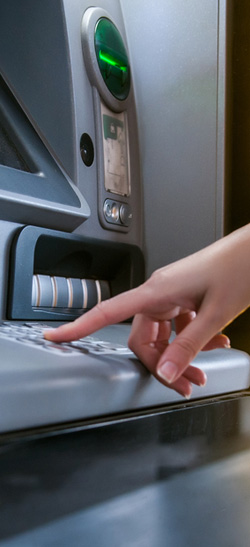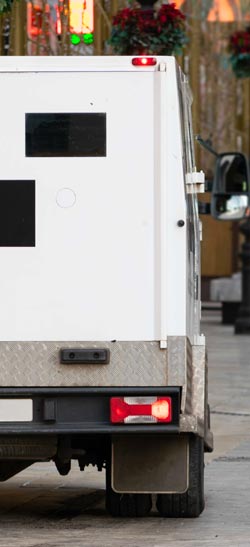Safes have been around for centuries, evolving into various forms to keep valuables secure. Whether you’re protecting important documents, safeguarding precious jewellery, or stashing emergency cash in an unpredictable neighbourhood, a reliable safe offers peace of mind.
Two of the most popular and secure options are wall safes and floor safes. While they share common purposes, each has distinct features that set them apart.
So, which one is right for you? Let’s dive into their similarities, differences, and unique advantages to help you decide.
What are Wall Safes?
Wall safes are a common type of safe used in private residences, businesses, and elsewhere.
They’re typically used to store valuable items such as jewellery, cash, important documents, small electronics, keys, and even guns.
As their name suggests, they are installed into walls. This generally at least partially conceals them. To add to this advantage, they can be completely concealed when hidden behind paintings, furniture or other objects. The concealment of the safe helps to deter them from burglars or theft.
A wall safe should be installed professionally to prevent damage to the structure of a property. The size and depth of the wall will define the dimensions of the safe that can be used.
Wall Safes vs Vaults
The main difference between wall safes and vaults is the sheer scale – wall safes are significantly smaller than vaults. Vaults typically take up whole rooms, floors, or even buildings.
But like safes, vaults come in a variety of forms, including bank vaults, art vaults, seed vaults, and more.
This typically means vaults have larger capacities and are more secure than wall safes, featuring an electronic lock or combination lock that offer double security.
What are Floor Safes?
Floor safes are typically safes encased in floors. They come in two main types:
- Underfloor Safe: These are often encased in concrete and built encased in building shuttering.
- Floorboard Safe: These are attached to joists that sit between floor and a ceiling or the ground.
Most floor safes require professional installation to both avoid floor damage and the risk of the safe not being fully secured. They can be partially or fully concealed by furniture, carpets to help prevent burglary.
Wall Safe vs Floor Safe: Similarities
More Secure Than Free-Standing Safes
Both wall safes and floor safes are far more secure than regular free-standing safes. This is because, whether they are encased in a concrete floor or bolted to a wall, they are extremely difficult to move.
They are also easier to conceal than regular safes. This concealment, such as behind a painting or rug, can act as a further deterrent to burglars.
Require Professional Installation
Professional services are typically required for installing both of these types of safes. Incorrect instalment could damage floors or walls, or even negatively impact the structural integrity of buildings.
The installation process can require substantial financial investment. However, once fitted, each safe solution can help with storage space usage.
Wall Safe vs Floor Safe: Differences
Costs
Costs can drastically vary depending on which type of safe is being installed and the level of security required.
Generally, wall safes are cheaper as they are smaller, have thinner walls, and can be installed more easily. For a basic wall safe, the starting price is approximately £66 ($83 USD).
Floor safes are typically larger, heavier, and more costly to install – with the average starting price for a basic floor safe being £115 ($145 USD).
Different Costs for Different Features
Choosing among the various features available can help consumers and businesses make the right choice of a safe, impacting the total cost of asset protection.
For example, a business may want secret security compartments or a particular lock mechanism. A range of locks can be implemented, from a key lock to biometric or a digital keypad. Locks that do not protrude are better for concealment.
Level of security
Floor safes can often provide a higher level of security than wall safes.
Some wall safes can still be accessed with the right tools by criminals. When they are installed, some are attached to drywalls with wooden studs. This can be easier for determined thieves to break through.
Floor safes, on the other hand, are often encased in concrete. They are also often heavier and have thicker doors than wall safes.
Convenience
Wall safes are more convenient than floor safes. Their installation process is far simpler and requires less time and resources than floor safes.
Furthermore, floor safes require bending down or kneeling for access. This is not ideal for regular use, especially if the objects concealing them need to regularly be moved and put back.
Also, most (underground) floor safes hold more items than wall safes. The former are often not as limited by space as the latter, which are restricted by the depth of walls.
Wall safes can often be relocated, too. But once a floor safe is installed, it is harder to move it as it becomes part of the building structure. This makes floor safes a more permanent option for a house or office.
How to Choose Between Wall & Floor Safes?
There are a few main factors to consider when choosing between wall and floor safes.
Budget
On average, floor safes tend to be more expensive than wall safes, both in terms of purchase price and installation costs. This is because floor safes often require more extensive modifications, such as cutting into concrete or reinforcing the surrounding area for added security. Additionally, professional installation is usually necessary, which can further increase the overall expense.
Wall safes, on the other hand, are generally more affordable and easier to install, especially if being mounted between standard wall studs. However, high-end wall safes with advanced locking mechanisms or fireproofing can still come at a premium.
When deciding on a safe, it’s important to balance cost with security needs – choosing a model that offers the best protection within your budget.
Space
For many buyers, floor and wall safes are limited by space on premises. Where exactly either option can depend on several factors, including:
- Tenancy Agreements: In situations where the individual, business, or organisation does not own a property.
- Materials Used: Concrete flooring, for example, is quite different to work with than wooden flooring or carpet.
- Positioning of Space: Safes should be placed in appropriately private quarters (back offices or studies, for example).
Frequency of Use
For businesses, cash management processes vary. Some frequently accept and process coins and banknotes, whilst others rely solely on cards and mobile payments instead.
In the former scenario where cash is frequently moved about, a wall safe is likely to be more convenient. In the latter, when a safe is more likely to store digital records or other valuables, a floor safe can be considered.
Value of Stored Goods
Floor safes are suitable for storing higher value items than wall safes because of their relative security.
When they are installed underground, they are even easier to conceal and harder for intruders to gain unauthorised access to.
That said, a wall safe can also be a wise investment. It still provides a high level of protection and can be concealed well.
Conclusion
Wall safes and floor safes both provide a higher level of security than regular safes.
The decision between the two hinges on factors such as cost, available space, frequency of use, and the value of items to be stored. Don’t forget to also consider the building materials used in the room where it will be installed.
Ultimately, whether you opt for the concealed convenience of a wall safe or the fortified security of a floor safe, the primary objective remains safeguarding your valuables. Safes are designed to accommodate everything from boxed jewelry and important documents to emergency cash, ensuring peace of mind.
At PayComplete, we offer a range of high-quality safes tailored to different security needs. Our selection includes advanced wall and floor safes, designed with durability, ease of use, and top-tier protection in mind.
Explore our smart safe offerings today and find the perfect security solution for you.

Related Posts








